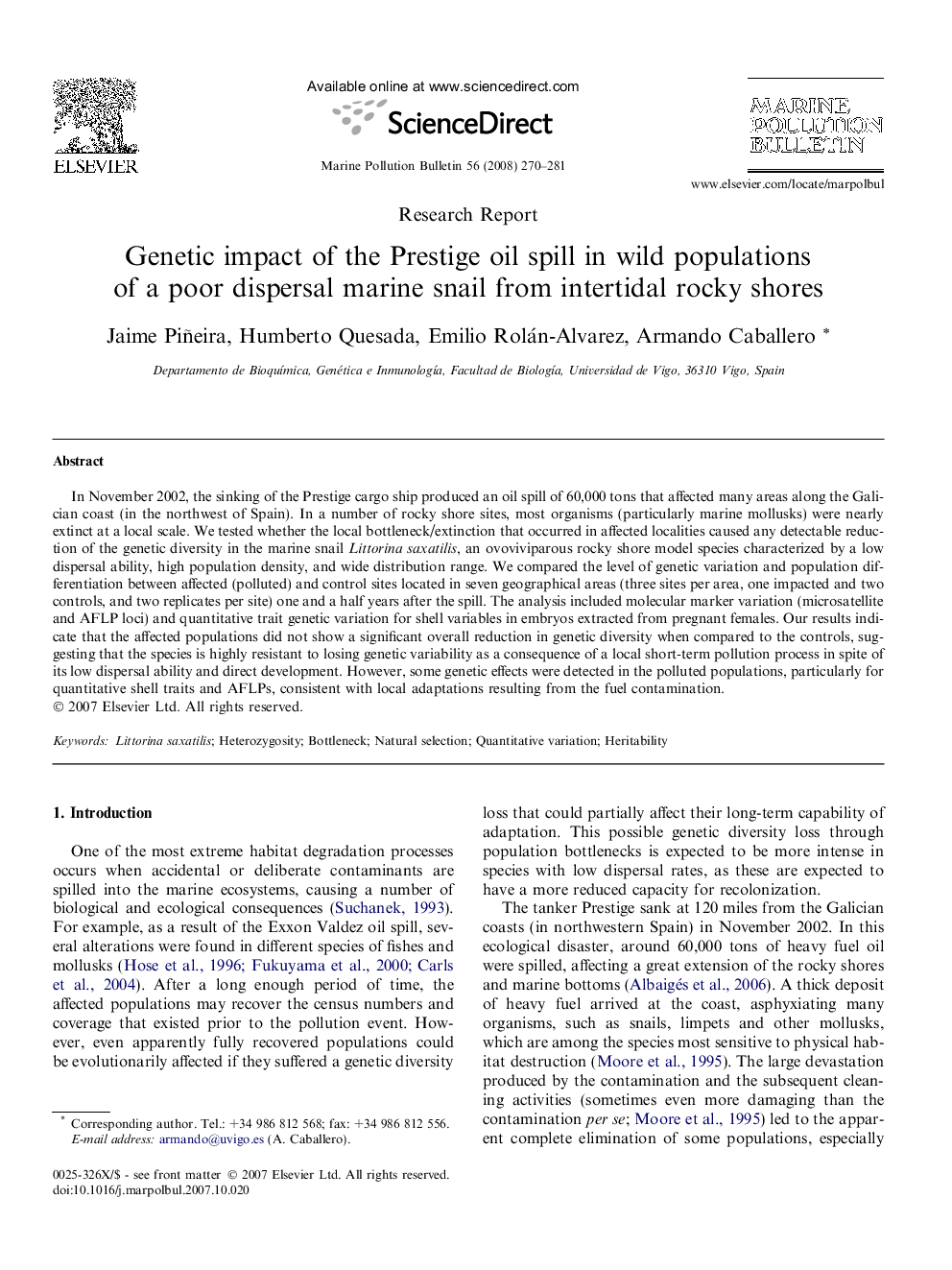| Article ID | Journal | Published Year | Pages | File Type |
|---|---|---|---|---|
| 4477273 | Marine Pollution Bulletin | 2008 | 12 Pages |
In November 2002, the sinking of the Prestige cargo ship produced an oil spill of 60,000 tons that affected many areas along the Galician coast (in the northwest of Spain). In a number of rocky shore sites, most organisms (particularly marine mollusks) were nearly extinct at a local scale. We tested whether the local bottleneck/extinction that occurred in affected localities caused any detectable reduction of the genetic diversity in the marine snail Littorina saxatilis, an ovoviviparous rocky shore model species characterized by a low dispersal ability, high population density, and wide distribution range. We compared the level of genetic variation and population differentiation between affected (polluted) and control sites located in seven geographical areas (three sites per area, one impacted and two controls, and two replicates per site) one and a half years after the spill. The analysis included molecular marker variation (microsatellite and AFLP loci) and quantitative trait genetic variation for shell variables in embryos extracted from pregnant females. Our results indicate that the affected populations did not show a significant overall reduction in genetic diversity when compared to the controls, suggesting that the species is highly resistant to losing genetic variability as a consequence of a local short-term pollution process in spite of its low dispersal ability and direct development. However, some genetic effects were detected in the polluted populations, particularly for quantitative shell traits and AFLPs, consistent with local adaptations resulting from the fuel contamination.
